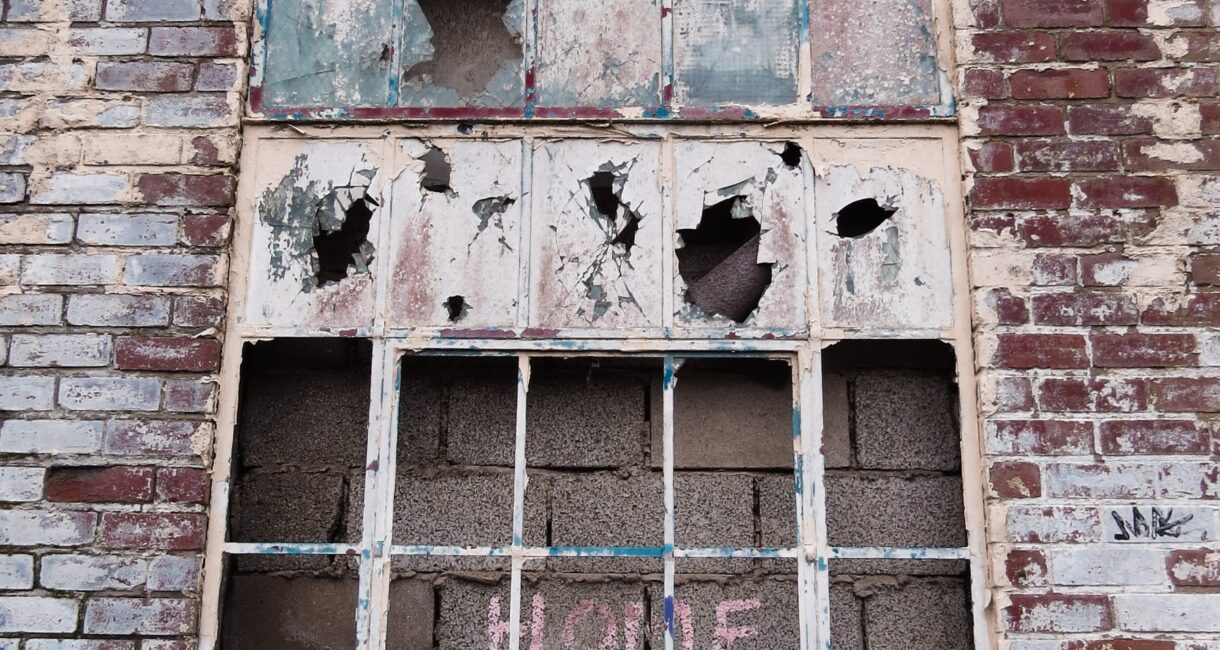Lorraine: I know many people that grew up in good homes; with parents and siblings that loved them. When they were children, they all got along. But as adults, they’re always fighting. Sometimes the fighting is just between the siblings. But in several cases, it includes the parents, as well. They don’t have anything good to say to one another – or about one another. And in several cases, they have no contact at all. How does this happen? And is this something new in today’s modern world?
Jesus: No, this is certainly not new. Even when I was alive, people who came from loving and supporting families, where everyone loved one another equally, turned against one another as adults. This problem is as common as bread. And, unfortunately, the faction it causes in the family has a rippling effect. It passes from generation to generation, and the end result is a long line of dysfunctional families.
Lorraine: I can understand why someone who grew up in an unloving and unsupportive household might not have any love for their family members. I mean, how can you love someone that doesn’t love you back, family or not? I would imagine the only feelings anyone could possibly have is anger.
Jesus: Most people from dysfunctional families feel nothing but hatred and rage for their family members.
Lorraine: That sounds kind of harsh.
Jesus: Not from my vantage point. While some people might never tell you that’s how they feel, I know what’s in their hearts and what they are thinking.
Lorraine: How do you go from loving your family members to hating them? And why is it so common?
Jesus: Hate is a learned behavior. If you’ve grown up in an unloving and unsupportive family, your parents, or at least one of them, likely did, as well. When you think and speak negatively and lash out at family members when you are angry, whether they have done something wrong or not, you are teaching hate. Hate is learned by observing the actions and hearing the words of others. And the learning begins from the moment you are born. You then take what you’ve learned into adulthood and pass it on to the next generation. To teach the next generation love, you must unlearn the hate you were taught growing up. You must learn what love is, and be able to feel and express it. To achieve this, you must replace your negative thoughts with positive ones. And speak positively about yourself and the people around you. Changing long-established negative behavior isn’t easy. But with effort and diligence, negative thinking and hate can be overcome. It starts with changing your thinking.
Lorraine: Let me make sure I’ve got this straight. You’re saying, if you grew up in an unloving and unsupportive household, and you hate your family members, you’re taking that hate into your marriage, and teaching it to your children. Is this correct?
Jesus: Unless you unlearn the hate you’ve been taught and learn how to love, yes.
Lorraine: But for two people to get married, they already have to know how to love. People don’t marry because they hate each other. They marry because they’re in love. Right?
Jesus: Not always. Many marriages in the world are arranged at birth or by matchmakers. The couple may never meet before their wedding day, or they may vaguely know each other. So they’re generally not in love when they marry. Most marriages, however, are of the romantic type. When two people become attracted to one another, they begin courting. Then they become infatuated. In a healthy relationship, that infatuation then becomes love. In an unhealthy relationship, it becomes codependency – a term your culture invented and understands.
In a codependent relationship, the two people involved effectively become addicted to one another. One person needs their partner. And the partner needs to be needed. And because they fulfill each other’s codependent needs, they foster and enable each other’s negative and disabling behaviors. As their dependency upon one another increases, they soon believe they cannot live without the other. So they marry, have children, and one day they wake up and discover they hate each other. This family may have been loving and supportive in the beginning, but their differences eventually overshadowed their love. What is more likely, however, is that these two people grew up in dysfunctional families, and they came together in hopes of finding love. But instead of love, they rediscovered the hate they had before the marriage, which took over and festered when life got tough. Either way, the results are the same. This dysfunctional couple will raise dysfunctional children. And those children, in turn, will take that dysfunction into their relationships. In truth, one might never really know where the dysfunction in their family originated.
Let’s move on to your second question – how do you go from loving your family members to hating them? It’s a good one. But to answer it, I have to go back to the very beginning – when a man and woman get married. When two people get married, they each bring into the marriage all that they learned from their parents while growing up. The woman learns how to be a wife and mother from her mother. The man learns how to be a husband and father from his father. From their respective upbringings, they learned from their parents how to love, support, and raise a family. That knowledge is then adapted, in part, to appease each other when the two different styles are in disagreement. And, too, when one or more children require unique or different parenting skills. Now you have a new parenting style, which the children will observe and learn. They will then take that knowledge into their marriages, adapt it, and pass it on to their children. This is called adaptation. In a healthy family, it is natural and necessary.
Out of anger and spite for their parents, a newlywed couple might agree to be better parents to their children than their parents were to them. While wanting to be better parents is a good and healthy thing, when done with anger in their hearts, they do not become better parents. Should they have a child with a health issue, learning disability, or talent that needs fostering, they will likely treat that child differently. The other children will feel neglected. And soon, they become jealous of the child that gets all the attention. So they begin acting out, not because they’re bad children, but because they’re vying for the parents’ attention. And then they become jealous of one another. By the time they’re adults, they hate each other. This once-loving family has become dysfunctional. Hate is the new paradigm. And not only do the family members pay the price for it, so does the next generation and the one after that. It takes on a snowball effect. People often wonder why the world has become so much angrier and meaner. And why crime is so rampant. Learning to love or hate starts in the family home, and the way you raise your children.
Hatred is destructive. Even in the most loving families, hate can arise when someone gets angry and says something hurtful. That’s all it takes to start hating someone. And the more it emerges, the more destructive it becomes until eventually, it overshadows love. You have to be so careful about what you say and do when you are angry. The hatred between family members can be so intense that they cannot be in the same room with one another. Physical fights break out. They verbally attack and emotionally abuse each other at every turn. They show no love for their family members because the love they once had for each other now ceases to exist. Hate can take over your life and control everything you do. I tell you now, hate is dangerous, it’s an evil that’s taking over your world.
Lorraine: It certainly seems that way.
“When you protect yourself from being hurt emotionally, you are preventing yourself from loving anyone, including yourself, unconditionally.”
Jesus: Before we move on, I’d like to give you another example of how hate can develop between family members. Dysfunction in the family doesn’t always start in childhood, nor from bad parenting.
In your world, there are many poor families. But for the sake of this example, I’ll talk about only one of them. There are two brothers. As adults, the older brother attains wealth while the younger brother remains poor. Resentful feelings develop as the poor brother thinks the older brother flaunts his wealth by buying fancy homes, cars, furs, and jewelry. The poor brother, embarrassed and ashamed when around his older brother, can barely make ends meet. He drives an old car, holds down three jobs, and still barely has enough money to buy food. He hates his older brother. He hates everything about him. More correctly, of course, he hates how he feels about being less successful than his brother. He is angry at himself for being poor. And he has displaced his anger onto his brother.
Lorraine: I can understand that. While growing up, all the siblings are on the same playing field. But as adults, they’re not. I’ve seen a lot of jealousy between siblings over the years.
Jesus: Every family member plays a unique position within the family structure. There is the father, mother, older sibling, middle sibling, and younger sibling – if there are that many people in the family. From an early age, you learn what your role within the family is, and how it works with the other members. By definition, this does not put the siblings on the same playing field. Siblings are seldom equal. But they can all get along. However, because you all live under the same roof, feelings will occasionally become hurt. And each member of the household will experience anger, jealousy, and frustration. Eventually, the petty jealousies and moments of frustration are forgotten, and you go on with life.
Lorraine: This is a healthy family you’re talking about, correct?
Jesus: Yes, it’s reasonably healthy up to this point. But I’m giving you an example of a loving and supportive family that later becomes filled with anger and hate. Let me continue.
As adults, you have your own families. And the role you have in your family is either mother or father. Your role as a sibling in your childhood family becomes secondary. The family members you grew up with, albeit subconsciously, expect you to maintain your childhood role. And vice versa. When one family member does better in life than another, the paradigm changes, causing anger and resentment among the childhood family members.
One sibling always does better or has more in life than the other. One marries better, has more kids. Smarter kids. Talented kids. Or they have a better job, house, car, or health.
Life as an adult is never the same as it was as a child. And year after year, it keeps changing. As each family member’s lives change, especially if it’s for the better, one or more members of the family may feel jealous, hurt, or angry. And so, they begin bickering, each saying hurtful words that are damaging to the other’s pride and ego. Words they may not mean but can never take back. Instead of apologizing, the bickering escalates, and the dysfunction festers. Until eventually, all the members of the family are fighting.
Eventually, the communication stops, and they can’t even be in the same room with one another. Hate has taken over and controls the family. No one can or will apologize because everyone feels hurt and betrayed. The animosity between family members is so powerful that no one can repair the damage. And no one can heal.
Lorraine: You would think the parents would intervene before it got to this point, if they’re still alive, of course. But what if they’re a part of the problem?
Jesus: They are no longer needed in their capacity as mothers and fathers. And they may need help and support from their adult children. But if they are participants in the hatred that exists between their adult children, who will do it? Who will get stuck doing that job? In healthy families, caring for aging parents is considered an honor. For the dysfunctional family, however, it is a chore. A job that nobody wants.
The one that gets stuck with the job feels angry and resentful towards the other siblings. Especially if they have distanced themselves from the caregiver and aging parents so they won’t have to participate in the elders’ care. As communication breaks down, frustration escalates. And forgiveness becomes more and more difficult, until one day it is virtually impossible. Hurts between family members run wide and deep. Truly I say to you; it is easier to forgive a murderer than members of your own family.
Lorraine: How do you bring families like this back together?
Jesus: I can tell you this. The larger the family, the harder it is to do. There may be family members that have moved away and have no intention of coming back – and they may not. Some family members may die. Others may be too angry, or they just don’t care. You may be told it’s physically or financially impossible for one or more to travel. But these, of course, are just excuses. There are many ways to connect with people in your world today. The quickest and easiest is a phone call. When you’ve tried your best, and reconciliation doesn’t happen, all you can do is pray to God and ask for his intervention. The rest is up to God.
But of the family members that do want reconciliation, they must be willing to do the work necessary to make it happen. It starts by saying I’m sorry. I’m sorry for hurting you. I’m sorry for saying harsh things to you and about you. I’m sorry I caused you pain, whether I did so intentionally or not. I’m sorry I was jealous of you. I’m sorry I didn’t support you or love you the way I should have. I’m sorry I didn’t help you when you needed me. I’m sorry I didn’t reach out to you sooner. I’m sorry I didn’t deal with my own emotions and insecurities, or your achievements and successes. And if you can’t say any of that, just say I’m sorry.
Lorraine: What if the apology isn’t accepted?
Jesus: If possible, find out why. Sometimes, hurts can go so deep that the person you want to reconcile with may not be ready to forgive or be forgiven. Don’t get angry if your apology is not accepted. You’ve done your part. But don’t let that be the end of it. Let your family members know that when they are ready, you will be waiting for them. Keep working at it until the reconciliation happens, or you are told to stop trying.
Ask God to heal the hurts in your family, and to help with the reconciliation. Ask him for forgiveness, then forgive yourself. For in the forgiveness process, you must forgive yourself first – especially if it is you that cannot forgive your family members.
If you never reconcile with your family members, and they never forgive you, or you can’t forgive them, know that with God, you are all forgiven. Your reconciliation with your family members will take place in heaven. Because in heaven, there is no anger, hatred, frustration, or jealousy. There are no negative emotions of any kind. There is only love. Whatever negative feelings you feel toward your family members in your physical form, you will only feel love for them in your spirit form.
Hating your loved ones is shameful, and it’s a colossal waste of your short time on Earth. When you die, all emotions that are attributable to the human equation, are gone with your last breath. You enter heaven as a child of God – a beautiful, loving spirit. As such, you radiate love. You are love. Why waste your time with emotions that serve no purpose other than to protect yourself from being hurt?
When you protect yourself from being hurt emotionally, you are preventing yourself from loving anyone, including yourself, unconditionally.
That’s a very profound statement. You should read it again.
Be well, my friends,
Jesus



